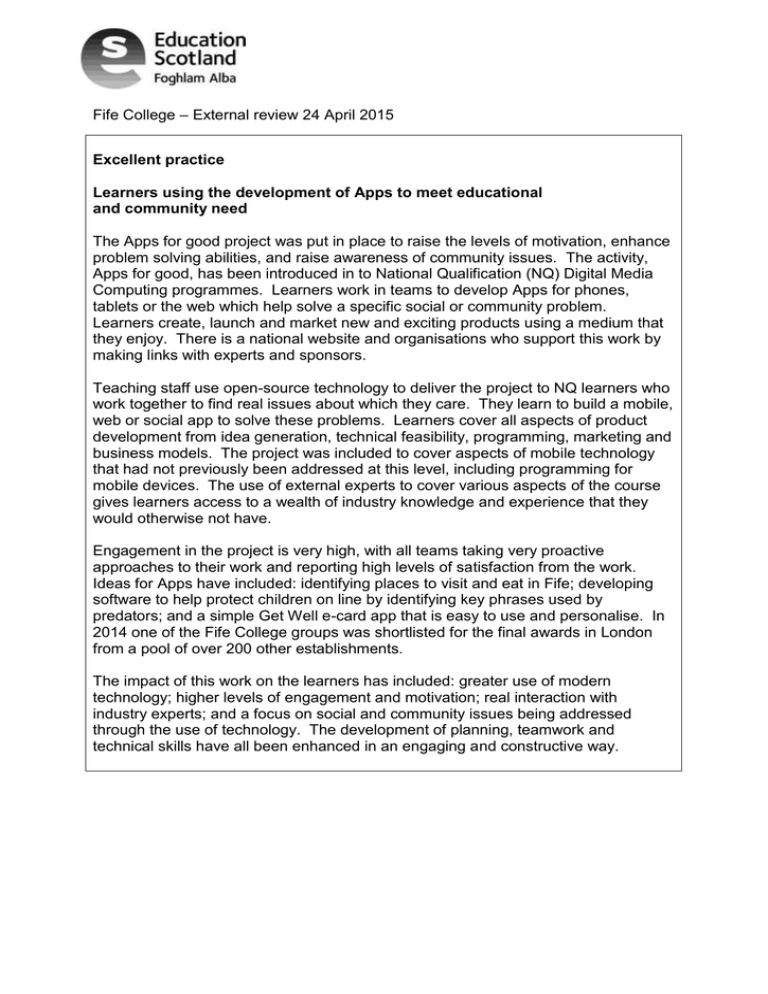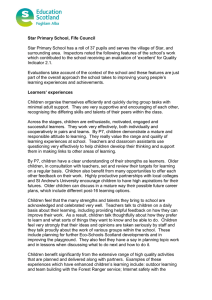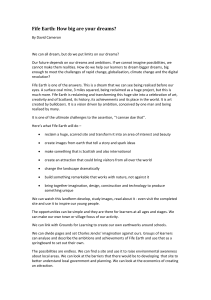– External review 24 April 2015 Fife College
advertisement

Fife College – External review 24 April 2015 Excellent practice Learners using the development of Apps to meet educational and community need The Apps for good project was put in place to raise the levels of motivation, enhance problem solving abilities, and raise awareness of community issues. The activity, Apps for good, has been introduced in to National Qualification (NQ) Digital Media Computing programmes. Learners work in teams to develop Apps for phones, tablets or the web which help solve a specific social or community problem. Learners create, launch and market new and exciting products using a medium that they enjoy. There is a national website and organisations who support this work by making links with experts and sponsors. Teaching staff use open-source technology to deliver the project to NQ learners who work together to find real issues about which they care. They learn to build a mobile, web or social app to solve these problems. Learners cover all aspects of product development from idea generation, technical feasibility, programming, marketing and business models. The project was included to cover aspects of mobile technology that had not previously been addressed at this level, including programming for mobile devices. The use of external experts to cover various aspects of the course gives learners access to a wealth of industry knowledge and experience that they would otherwise not have. Engagement in the project is very high, with all teams taking very proactive approaches to their work and reporting high levels of satisfaction from the work. Ideas for Apps have included: identifying places to visit and eat in Fife; developing software to help protect children on line by identifying key phrases used by predators; and a simple Get Well e-card app that is easy to use and personalise. In 2014 one of the Fife College groups was shortlisted for the final awards in London from a pool of over 200 other establishments. The impact of this work on the learners has included: greater use of modern technology; higher levels of engagement and motivation; real interaction with industry experts; and a focus on social and community issues being addressed through the use of technology. The development of planning, teamwork and technical skills have all been enhanced in an engaging and constructive way.






